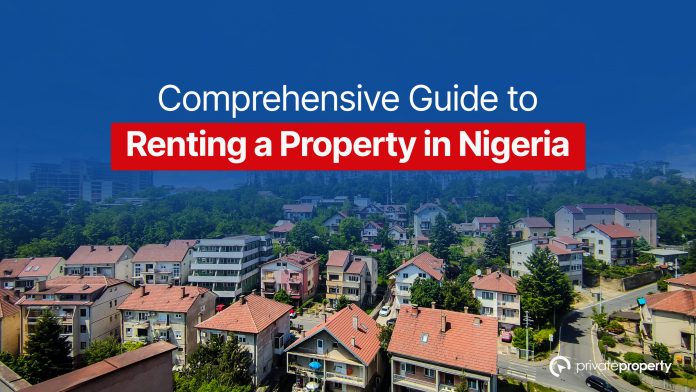Renting a property in Nigeria can be an exciting yet daunting experience, especially in 2025, as the country continues to evolve its real estate landscape. Whether you’re a local resident or an expatriate, navigating the rental market requires a clear understanding of legal, financial, and practical considerations.
Comprehensive Guide to Renting a Property in Nigeria
This guide provides a step-by-step breakdown to help you secure a suitable property with ease.
1. Understand the Nigerian Rental Market
The Nigerian property market varies significantly depending on location, property type, and economic trends. Lagos, Abuja, and Port Harcourt are the most sought-after cities, offering a mix of luxury apartments, single-family homes, and shared accommodations. While urban areas feature higher rental prices, smaller cities and towns tend to be more affordable.
In 2025, inflation and currency fluctuations are influencing rental rates. It’s essential to research market trends in your preferred area to understand pricing, demand, and availability. Real estate platforms, local agents, and online listings are excellent resources for gathering this information.
2. Determine Your Budget
Budgeting is crucial before starting your property search. Typically, rental agreements in Nigeria require tenants to pay rent for one to two years upfront, along with additional fees like a security deposit, legal fees, and agent commissions.
When setting your budget, factor in ancillary costs such as utility bills, maintenance fees, and transportation expenses. For example, renting in Lagos may require a budget of around NGN 1.5 million to NGN 5 million annually for a standard two-bedroom apartment, depending on the neighborhood.
3. Identify Your Preferred Location
Your choice of location significantly impacts your lifestyle and budget. When selecting an area, consider factors such as proximity to your workplace, schools, healthcare facilities, and recreational centers. For instance:
Lagos: Known for its bustling commercial hubs like Victoria Island and Lekki, Lagos offers premium properties but comes with higher traffic congestion.
Abuja: The Federal Capital Territory provides serene neighborhoods like Maitama and Asokoro, ideal for families and expatriates.
Port Harcourt: Popular for its oil-driven economy, Port Harcourt has diverse housing options catering to professionals.
Research the security, infrastructure, and amenities available in your preferred area to ensure it aligns with your lifestyle.
4. Engage a Reputable Real Estate Agent/Agency
Working with a trusted real estate agent can streamline your property search. Agents are familiar with the local market and can help you find properties that meet your criteria. However, beware of fraudulent agents. Verify their credentials, request references, and conduct due diligence before engaging their services.
In 2025, many property seekers rely on digital platforms like Privateproperty.com.ng and other private real estate apps to connect with agents and landlords. These platforms provide detailed property listings, photos, and reviews, making the process more transparent.
5. Inspect the Property Thoroughly
Never finalize a rental agreement without inspecting the property. Schedule a physical visit to assess the condition of the property, its facilities, and its surroundings. Check for:
- Functionality of utilities like water, electricity, and plumbing
- Structural integrity and maintenance of the building
- Security measures such as gates, CCTV, and neighborhood safety
- Accessibility to roads and public transport
If you’re unable to inspect the property personally, consider hiring a trusted representative to do so on your behalf.
6. Understand Legal and Financial Obligations
Familiarize yourself with the legal and financial requirements involved in renting a property. Key considerations include:
Tenancy Agreement: Ensure the landlord provides a written agreement outlining the terms of rent, duration, payment schedule, and responsibilities of both parties.
Payment Structure: Avoid cash transactions. Opt for bank transfers to maintain a clear record of payments.
Legal Fees and Agent Commission: Typically, legal fees are 5-10% of the annual rent, while agent commissions are around 10%.
Stamp Duty: Tenants are required to pay stamp duty, which is calculated as a percentage of the annual rent.
Consult a lawyer to review the tenancy agreement and ensure compliance with Nigerian tenancy laws.
7. Negotiate Terms and Finalize the Agreement
In Nigeria, rental agreements are often negotiable. Don’t hesitate to discuss terms such as the rent amount, duration, or maintenance responsibilities with the landlord. Negotiation can help you secure a better deal that suits your needs.
Once both parties agree, sign the tenancy agreement and obtain a receipt for all payments made. Keep copies of all documents for future reference.
8. Settle In and Maintain Good Relations
After moving in, familiarize yourself with the community and adhere to the property’s rules and regulations. Maintain a good relationship with your landlord by reporting issues promptly and fulfilling your obligations as a tenant.
9. Be Aware of Common Challenges
Renting a property in Nigeria comes with challenges such as power outages, water supply issues, and security concerns. Prepare for these by investing in backup power solutions like inverters or generators and ensuring access to reliable water sources.
Fraudulent activities are another concern. Always verify the ownership of the property and deal only with verified agents or landlords to avoid scams.
Conclusion
Renting a property in Nigeria in 2025 requires careful planning, research, and due diligence. You can find a suitable home that meets your needs by understanding the market, setting a realistic budget, engaging reliable agents, and adhering to legal processes. With the right approach, navigating the Nigerian rental market can be a rewarding experience, offering you comfort and peace of mind in your new home.









